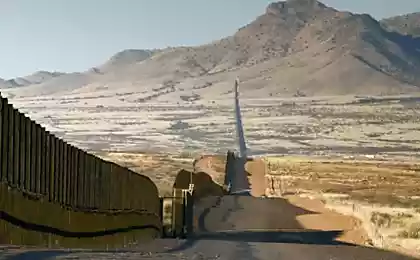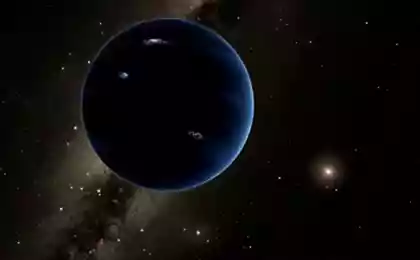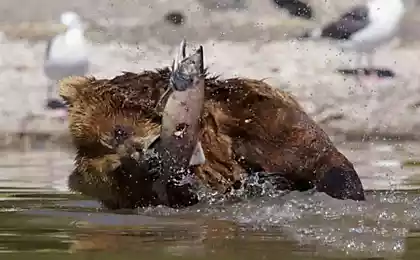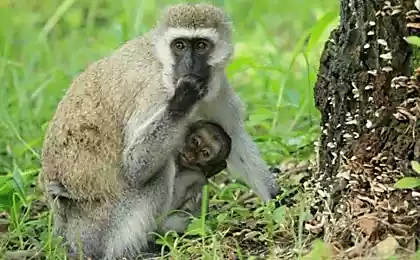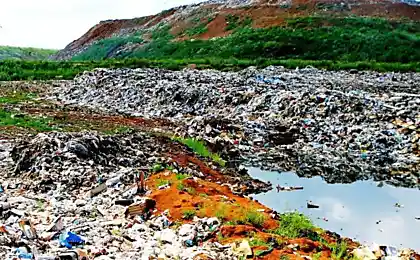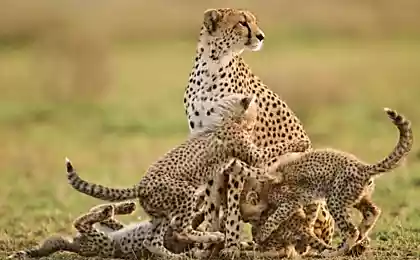195
Wildlife every day 20 thousand hectares less
Analysis of satellite images revealed the degradation of 8% of critically important intact forest areas (MLT) for 10 years.
From 2000 to 2013, humanity lost more than 104 million hectares of undisturbed forests, which is approximately the area of three Germanys. This became clear as a result of the study of space images of the Earth by specialists from Greenpeace, the University of Maryland, the Transparent World organization with the support of the World Resources Institute and WWF Russia.
Undisturbed forest areas play a huge role in preserving biodiversity. Many animals – bears, large predators of the cat family – survive only if large areas of land are not used. Most of these territories – 65% – are located in three countries: Canada, Russia and Brazil. And it is in these countries that the greatest degradation of wildlife is observed: half of the losses are roads, logging, timber and mineral extraction in the three countries. Every day, intact forest areas become 20 thousand hectares less. For comparison, the area of the football field is 0.7 hectares, the area of the state of Monaco is 202 hectares.
Our infographic reflects their degradation of intact both around the world in general and data for some countries.
“Such forests are crushed under human influence, and in them large animals and those that need large spaces for life no longer survive. Moreover, the preservation of such territories untouched is critically important for all of us: thanks to such territories, air and water can remain clean, the destruction of untouched forests leads to climate change, which is fraught with cataclysms and natural disasters, says Ilona Zhuravleva, an expert, head of the Greenpeace Russia geoinformation laboratory. I. Zhuravleva took part in mapping and analysis of images.
“The larger the area of the preserved natural territory, the less its natural complexes are susceptible to adverse external influences,” says Alexey Yaroshenko, expert, head of the Greenpeace Russia forest program.
“States need to take immediate steps to stop the disappearance of wild forest areas, and legislation is needed,” said Professor Christoph Thies, head of the Greenpeace International Forest Program.
Greenpeace Russia recalls that the Convention on Biological Diversity, adopted in 2002 and ratified by the vast majority of countries of the world, sets the task of preserving the diversity of species on Earth. Therefore, it is necessary to preserve the biological diversity of forests, which are home to most of all species of animals and plants. The Convention has been ratified by the leading countries in the extinction of wildlife: Russia, Canada and Brazil.
Source: www.greenpeace.org
From 2000 to 2013, humanity lost more than 104 million hectares of undisturbed forests, which is approximately the area of three Germanys. This became clear as a result of the study of space images of the Earth by specialists from Greenpeace, the University of Maryland, the Transparent World organization with the support of the World Resources Institute and WWF Russia.
Undisturbed forest areas play a huge role in preserving biodiversity. Many animals – bears, large predators of the cat family – survive only if large areas of land are not used. Most of these territories – 65% – are located in three countries: Canada, Russia and Brazil. And it is in these countries that the greatest degradation of wildlife is observed: half of the losses are roads, logging, timber and mineral extraction in the three countries. Every day, intact forest areas become 20 thousand hectares less. For comparison, the area of the football field is 0.7 hectares, the area of the state of Monaco is 202 hectares.
Our infographic reflects their degradation of intact both around the world in general and data for some countries.
“Such forests are crushed under human influence, and in them large animals and those that need large spaces for life no longer survive. Moreover, the preservation of such territories untouched is critically important for all of us: thanks to such territories, air and water can remain clean, the destruction of untouched forests leads to climate change, which is fraught with cataclysms and natural disasters, says Ilona Zhuravleva, an expert, head of the Greenpeace Russia geoinformation laboratory. I. Zhuravleva took part in mapping and analysis of images.
“The larger the area of the preserved natural territory, the less its natural complexes are susceptible to adverse external influences,” says Alexey Yaroshenko, expert, head of the Greenpeace Russia forest program.
“States need to take immediate steps to stop the disappearance of wild forest areas, and legislation is needed,” said Professor Christoph Thies, head of the Greenpeace International Forest Program.
Greenpeace Russia recalls that the Convention on Biological Diversity, adopted in 2002 and ratified by the vast majority of countries of the world, sets the task of preserving the diversity of species on Earth. Therefore, it is necessary to preserve the biological diversity of forests, which are home to most of all species of animals and plants. The Convention has been ratified by the leading countries in the extinction of wildlife: Russia, Canada and Brazil.
Source: www.greenpeace.org
Scientists have found one of the causes of Alzheimer’s disease
The inhabitants of the human oral cavity

